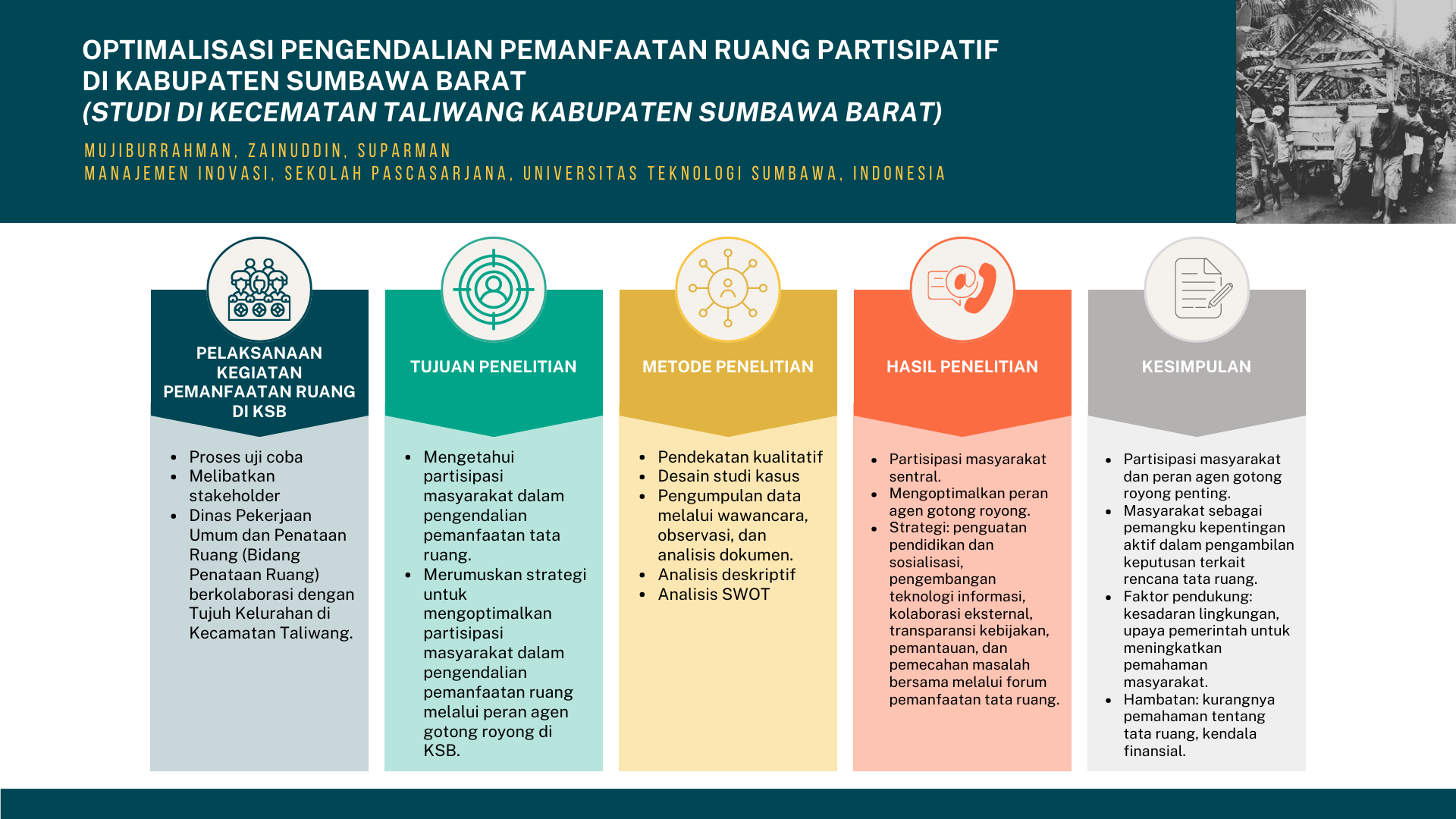OPTIMALISASI PENGENDALIAN PEMANFAATAN RUANG PARTISIPATIF DI KABUPATEN SUMBAWA BARAT (STUDI DI KECAMATAN TALIWANG)
Keywords:
Optimization, Control, Ultilization, Spatial Planning, AGRAbstract
The implementation of spatial utilization and control activities in West Sumbawa Regency is carried out through a trial process that involves several stakeholders, where the Department of Public Works and Spatial Planning, through the Spatial Planning Division, collaborates with seven sub-districts in Taliwang. This research aims to determine community participation in spatial utilization control and to formulate strategies to optimize community participation in spatial utilization control through the role of mutual cooperation agents in West Sumbawa Regency.
The researcher applies a qualitative research approach using a case study design. Data is collected from various sources, including interviews, observations, and document analysis, to provide in-depth insights into the phenomenon under study. The data analysis methods used are descriptive analysis and SWOT analysis to comprehensively analyze the data. The research results have shown that community participation in spatial utilization control in West Sumbawa Regency plays a central role in maintaining balance, and the role of mutual cooperation agents has optimized community participation in strengthening the relationship between the government and citizens through strategies such as strengthening education and socialization, the development and utilization of information technology, collaboration with external parties, increased transparency in planning, determination, and policy implementation, monitoring, as well as joint problem-solving through spatial utilization forums. The conclusion of this research is that community participation and the role of mutual cooperation agents are crucial, with the community not only acting as observers but also active stakeholders in decision-making related to spatial planning. Supporting factors include awareness of the importance of environmental preservation and government efforts to improve public understanding of spatial planning. Lack of understanding of spatial planning and financial constraints that can limit participation are some of the barriers.

